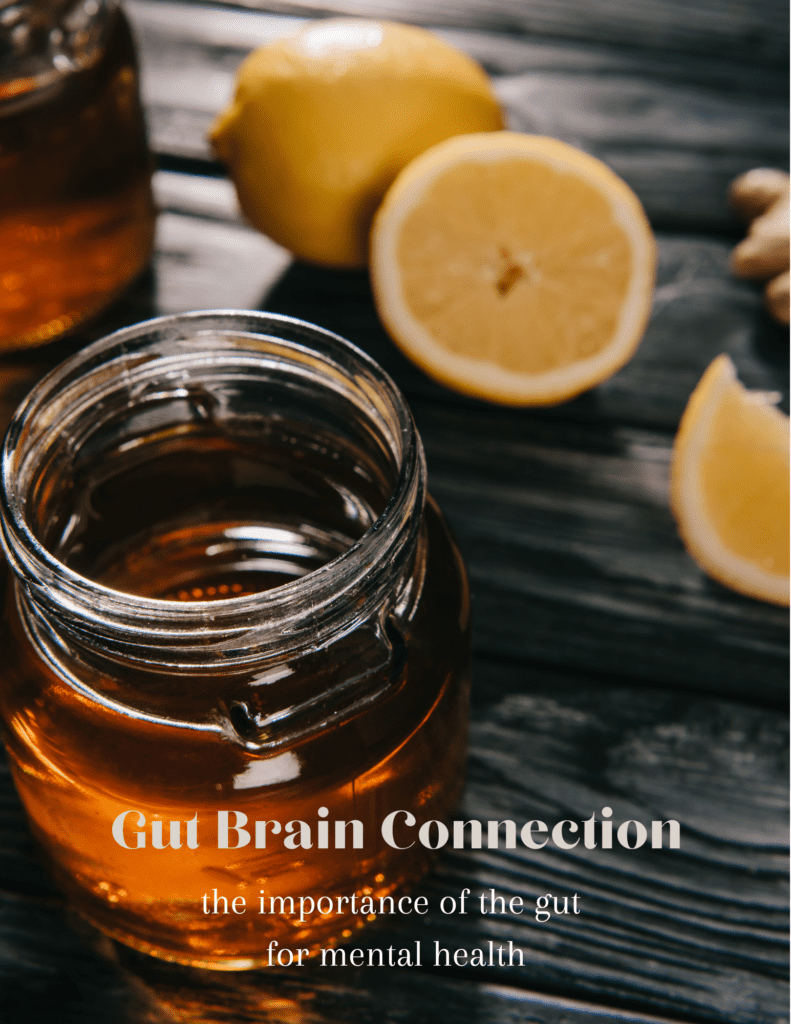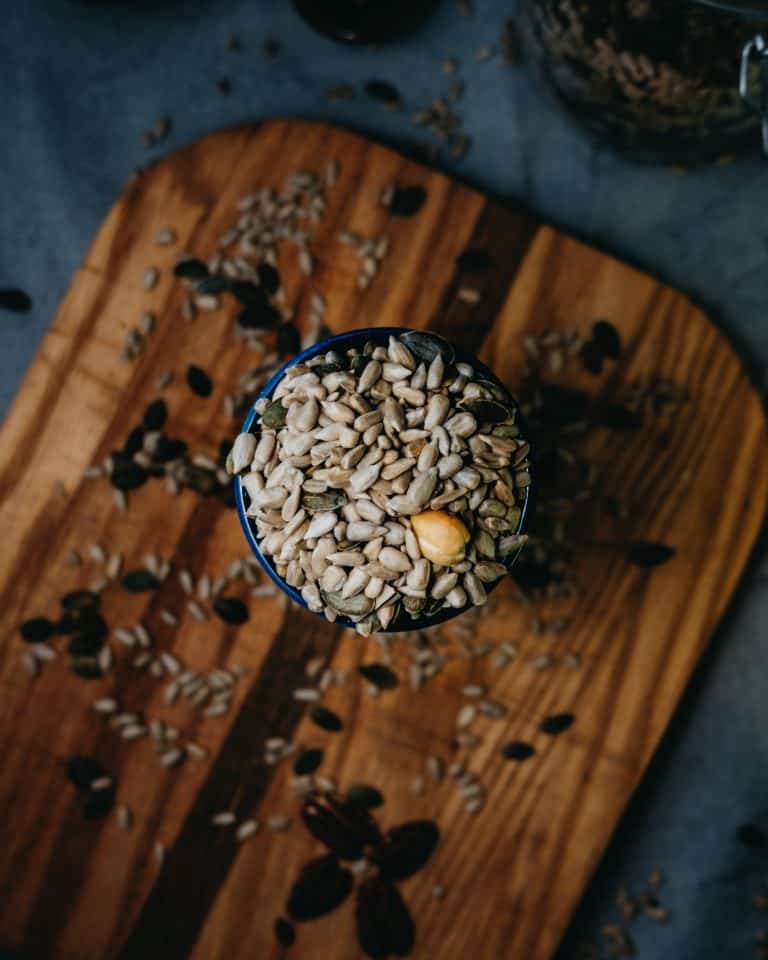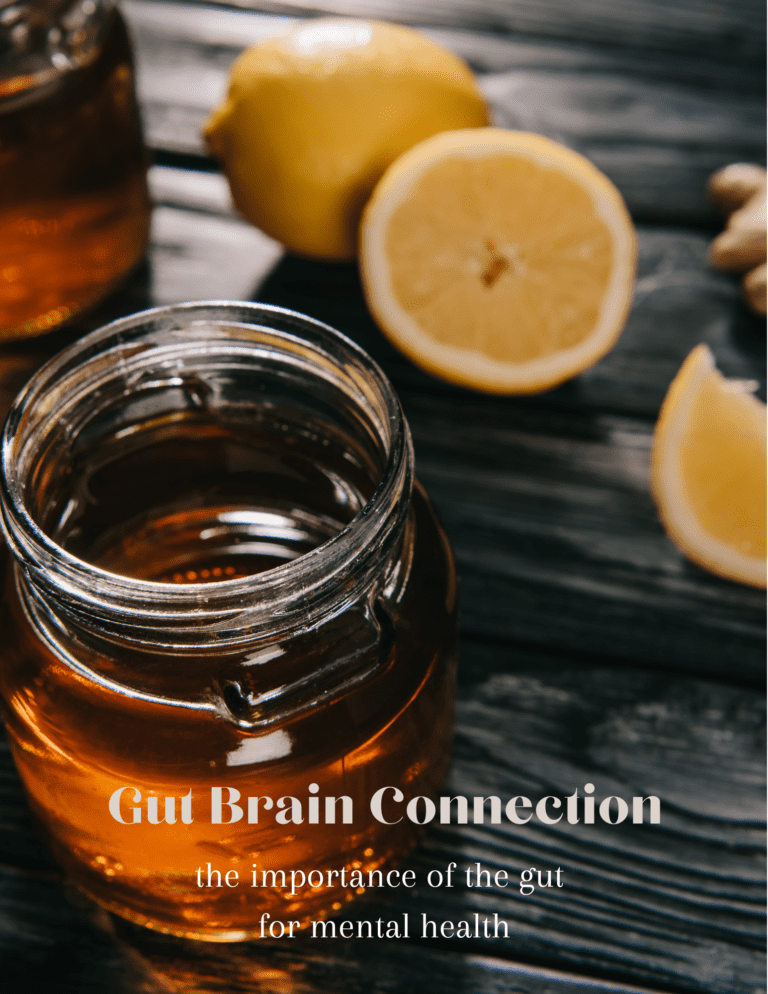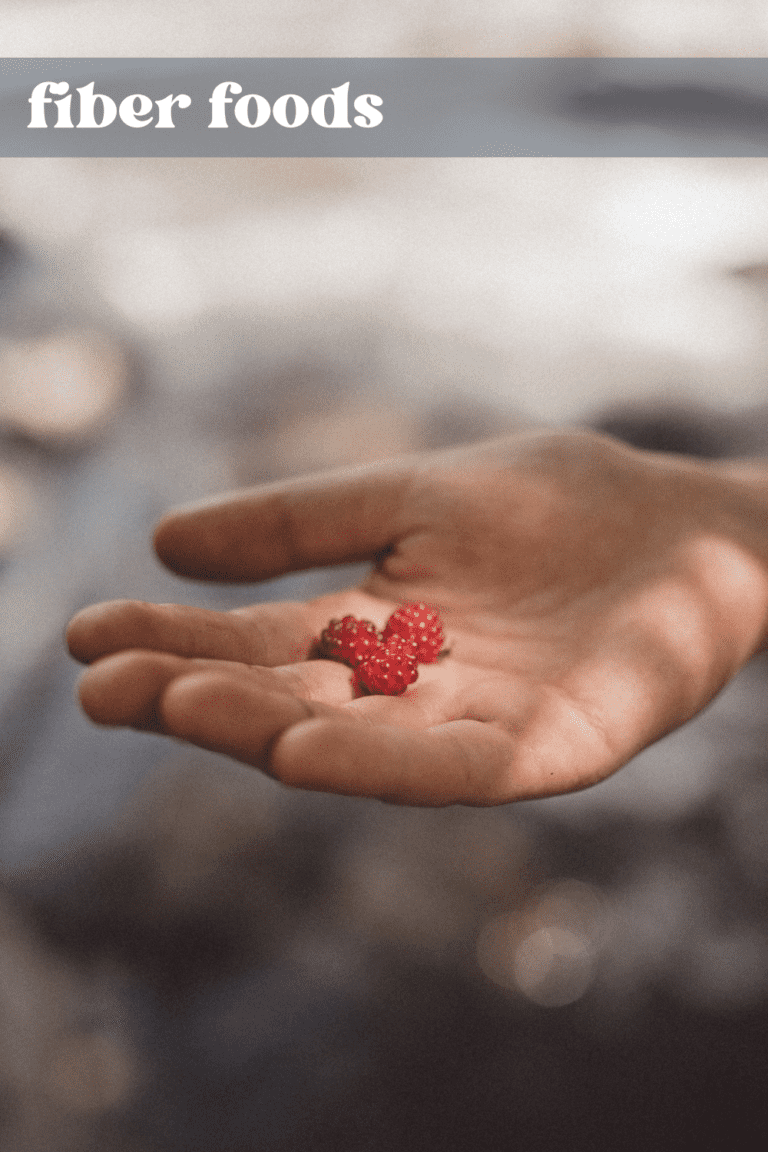The gut brain connection is a relatively new focus in science that is producing real evidence that the two are heavily linked. The brain and gut have long been considered separate entities, but in fact, the two coexist in tandem with each other through signaling within the body. How we care for one affects the other and vice versa. Let’s break down the importance of each and how they work together to keep us healthy.

When you think of your stomach, the last thing that you consider is how your mind might be affected. The two seem so separate??
The gut brain axis is what we are talking about here. The gut brain axis is a network of signals that sends communication via neurotransmitters from the brain to the intestines, where all of our digestion takes place.
How we take care of our gut, greatly affects our mind. It all starts with the gut microbiome, which is the ecosystem of bacteria in our gut. And the way we eat is how we manipulate the bacteria in our gut lining.
So, how does this happen? Well, the gut microbes communicate with the brain directly, so the type of gut bugs you have matters.
This post will discuss why taking care of your gut is essential for your mental well-being and some ways to improve your gut microbiome.
Gut Brain Axis… Simplified
Inside of our bodies are two systems that make up our nervous system.
- The Parasympathetic Nervous system and the Central Nervous system
The Parasympathetic Nervous system, or PNS, is the system that regulates our bodily functions like digestion, immune system, and heart rate.
A crucial part of the PNS is the Vagus Nerve. Think of the vagus nerve as a communication pathway between the brain and the body. It’s like an information highway.
Neurotransmitters are the carriers of the messages that get sent through the PNS. They are the signals through which the brain and the gut microbiome communicate.
The Gut-Brain Axis is just a fancy word for that process that occurs inside of our bodies.
RELATED: 7 High Fiber Foods You Should Eat for Longevity
Microbiome Communication
Let me start off by saying, there are over 10 times as many gut microbes as there are cells in the human body…. Mind blown.
You’re probably wondering exactly how the gut microbes communicate with the brain? It makes sense that the brain can send neurotransmitters, but how do those little gut bugs send messages?
Well, it all comes down to the metabolites, or the “end product” of microbe digestion. Yes, the bugs in our gut actually eat what we eat and produce waste products just like we do.
The phrase “you are what you eat” certainly applies to this concept. What we eat is what our microbiome eats and certain bacteria thrive in certain environments.
For example, if you eat a high protein, high fat diet then you are more likely to have Bacteroides vs a high carbohydrate diet is more heavily pronounced Prevotella bacteria. If you want to read more about enterotypes of bacteria in the gut, you can here.
As you can see, the gut and the brain work in tandem.
Dysbiosis
Dysbiosis is the “less than optimal” environment in the gut that the microbes create. The types of microbes that you have in your gut lining can throw off the balance in your intestines, creating dysbiosis.
Dysbiosis can lead to inflammation, stress in the gut, and a breakdown of the gut lining. The breakdown of the gut lining sends messages to the brain that can affect cognition and brain function.
Stress
The brain also has a direct effect on gut function as well. This is a two-way street like any good relationship.
During times of stress, the brain can send messages to the gut. And guess what? The gut freaks out too; throwing everything off balance.
Stress hormones are released, like cortisol, and can alter the environment of the microbiome, which in turn leads to inflammation, etc., etc.
Basically, it’s a vicious cycle if you allow it to get to that point. LUCKILY, there are ways to keep our guts and minds in tip top shape.
RELATED: Inflammation and the Gut
Gut Brain Connection Diet
Now that we know exactly how the gut brain connection works and that it is heavily influenced by diet, how can we eat to influence our gut microbiome?
Fiber (Prebiotics)
Fiber is so important for gut health. Think of fiber like a vacuum that cleans out the intestines; pushing all the waste through your body. The best thing about fiber is it filled with “prebiotics”, which is essentially the food that our microbes eat.
Think of fiber as their preferred source of food and the food you feed the microbes directly affects your gut lining.
Foods that are high in fiber are fruits and vegetables, whole grains, and beans.
Fermented Foods
Fermentation occurs when carbohydrates are broken down in food by certain bacteria. Similar to a sourdough bread starter; you introduce yeast (a bacteria) to the dough to break down the carbohydrates (sugars) and the bacteria produce gas to help the bread rise. The same process happens in our stomach! Human gas is actually the result of your microbiome breaking down your food.
Fermented foods are also super important. “Fermented” means that the food is filled with good bacteria through the process of fermentation. Yogurt, kimchi, soy, etc. are all filled with good bacteria that help our gut.
Probiotics
Probiotics are available (similar to fermented foods) to introduce good bacteria into the gut. The reason probiotics are beneficial is because there is a wide diversity of bacteria introduced into the gut.
Gut biodiversity is the existence of a wide variety of different microorganisms. Each bacteria plays a different role in the gut and the more bacteria we introduce, the more diverse the population. A probiotic is a great way to introduce a large amount of different bacteria into your body.
Plant Diversity
If a probiotic supplement is not feasible for you, then plant diversity is equally as beneficial. The more plants we eat, the more prebiotics we introduce to our gut. Our microbiomes adjust according to what we eat.
If we start to eat a more plant heavy diet, then the microbiome will adjust to be able to digest the sugars that are broken down during digestion of plants. Plants do contain sugars like sucrose, fructose, and glucose that the microbiome feed off of.
Meditation
Though this is not dietary related, meditation or relaxation is important for calming the parasympathetic nervous system down. Think of meditation like food for your brain. It’s keeping that relationship between your brain and gut calm so that adrenaline hormones are kept at bay.
If meditation is not for you, then simply finding some time to relax in the day is equally as beneficial.
This post was a simplified overview of just how the gut and brain communicate and how what we eat can affect that communication and our health!



